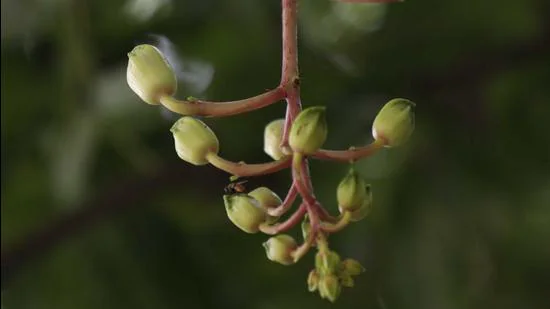In 2020, despite a big pandemic hitting the ground, India got rich with 800 new species of plants and animals which also included completely new discoveries which were earlier not known to man.
However, the number of discoveries made by the Botanical Survey of India (BSI) and Zoological Survey of India (ZSI) reduced as compared to the last five years.

AA Mao, BSI director, said, “There has been a drop in the discovery of plant species this year due to the Covid-19 pandemic. Because of the pan-India lockdown, restrictions on travel imposed by several states and the raging Coronavirus, scientists could not travel to remote areas. The budget has also been slashed, for which field tours had to be curtailed.”
“The surveys and exploration work got halted because of the pandemic. The scientists worked mostly from home. Despite the pandemic, 267 new species of plants were discovered across India. Some of these were reported from the country for the first time,” added Mao.
According to the HT Times, on average, the BSI has been identifying around 350 species of plants every year in the last five years at least.

The BSI released its list of discoveries of plant species on Monday. “In 2020, the Botanical Survey of India (BSI) had discovered a total of 267 plant species, out of which 202 species are entirely new to science. At the same time, 65 other species had never been reported from India before,” wrote Bharat Sharma in India Times.
The Zoological Survey of India on the other hand took out its list last month. They have reported a finding of 557 new species, out of which 407 were new, while the rest were reported from the country for the first time.
A ZSI scientist said, “The list of new discoveries includes 28 reptiles, six amphibians, and 28 species of fish. Out of the 28 reptiles, 27 were new discoveries. All six amphibians have been recorded for the first time, while at least 23 species of fish have been reported for the first time.”

Every year the biodiversity hot spots such as the Himalayas, Western Ghats, and the Nicobar Islands in the Bay of Bengal mark the highest number of discoveries.
This year, the highest number of new species of animals were recorded in Karnataka (66) followed by Kerala (51) and Rajasthan (46).
Dhriti Banerjee, ZSI director said, “Over the past one-and-half year, field surveys have virtually come to a halt. During this time, ZSI scientists had to primarily depend on the samples they collected in earlier field trips. Not all samples which are collected can be analyzed in one go. Those were analyzed, and we came up with a few hundred new species.”

“We had taken a few one-day field trips, but the long-duration trips which allow exploring remote areas in forests could not be undertaken because of travel restrictions. Also, some scientists got infected,” said a ZSI scientist.
Also Read : Declining Flora And Fauna, Another Warning Call Besides Climate Crisis In Wales: NRW












